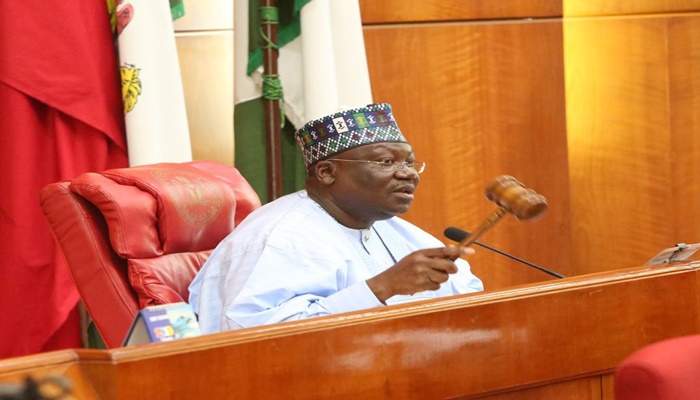The Senate has urged the Ministry of Special Duties and Inter-Governmental Affairs in conjunction with other relevant Ministries, Departments and Agencies to develop strategic framework for the promotion of the establishment and development of cottage industries in all the 774 LGAs of the country.
The call was made on Tuesday after the Upper Chamber considered a motion on the need to create job opportunities, reduce poverty and rural-urban drift.
Sponsor of the motion, Senator Degi-Eremienyo, W. Biobarakuma (APC – Bayelsa East), in his presentation, noted the dearth of cottage industries in rural communities and the critical role it plays in the provision of large employment opportunities.
According to him, over 60 percent of the labour force in the country is engaged either in the formal or informal sectors.
He stressed that with the current global pandemic ravaging the world and its attendant negative impact on the economy, the need for cottage industries to help in stimulating the economy cannot be over-emphasized.
The lawmaker noted that such smaIl-scale industries often operate out of home, rather than purpose-built facilities and often focus on the production of labour-intensive goods.
Biobarakuma expressed worry that the dearth of cottage industries brings with it the attendant increase in the rate of migration from rural to urban areas in the quest for source of livelihood and greener pastures, saying, “this massive rural-urban drift has led to deplorable working/living conditions and pollution, child labour and acute food shortages.
According to the lawmaker, “the establishment and development of cottage industries will not only help in the reduction of ruxal-urban drift, but also serve as a veritable avenue for the creation of enormous job opportunities for our teeming youths, in line with the Presidential Poverty Reduction Initiative (PPRI) and Mr. President’s special works program which is aimed at cushioning the effects of economic downturn, especially caused by the corona virus pandemic.”
He noted further that “many modern cottage industries serve as a market that seeks out original handcrafted products as Opposed to mass-produced, name branded products and can include anything from clothing items and crafts to decorative home furnishings; develop as feeders for raw materials or support services to the main industrial complexes and will harness multi-sector opportunities for empowerment and poverty alleviation within the economic corridors of the 774 LGAs of the country.”
Biobarakuma emphasized that developing countries such as Nigeria have a comparative advantage in the use of labour compared to the use of capital, thereby allowing the country to produce labour-intensive goods more cheaply than developed countries.
“As such, under suitable atmosphere, cottage industries can allow local residents to come together to produce crafts for sale in local markets or even for export to larger cities and other countries, thereby boosting our foreign exchange,” the lawmaker said.
He recalled that in the President’s Democracy Day speech of June 12, 2020, President Muhammadu Buhari announced that he had directed the employment of 774,000 Nigerians who will be engaged in Special Public Works Programme aimed at cushioning the effects of economic downturn.
“There is no doubt that it is only when government is consciously and strategically involved in the equitable promotion of the establishment and sustainable development of cottage industries that can guarantee impactful fruition of government’s efforts in this regard.
“Indeed there is no gainsaying the fact that cottage industries remain the special purpose vehicle for the lifting
of millions of Nigerians out of poverty,” he added.
Accordingly, the Senate in its resolutions urged the Ministry of Special Duties and Inter-Governmental Affairs in conjunction with other relevant Ministries, Departments and Agencies to develop strategic framework for the promotion of the establishment and development of cottage industries in all the 774 LGAs of
the country.
The Upper Chamber also directed its Committee on Special duties to ensure aggressive oversight in the implementation of the Federal Government funded policies and programmes in this direction.








































